Ernst Wild
出生 : 1930-09-28, Alt-Rohlau, Czechoslovakia

Self

Self
Over twenty-five years after his death in July 1989, the controversial Austrian conductor Herbert von Karajan remains an enigma. He was the most successful conductor in the history of classical music. Many of his recordings - of Italian opera, of Wagner and Richard Strauss, of Sibelius, Beethoven and Brahms - are treasured by music lovers around the world. Yet, even at the peak of his fame, his performances were variously criticised for being too opulent, too manicured, lacking warmth or spiritual depth. This musical profile explores the many paradoxes in the life and music of this controversial figure, who forged his international reputation in London with the Philharmonia Orchestra shortly after the end of the Second World War and went on to reign supreme in the classical music world during his three decades with the Berlin Philharmonic. The film also examines Karajan's belief in the visual power of music, and his determination to leave behind a substantial legacy of music on film.

Self
Documentary on conductor Herbert van Karajan, focusing on his early adoption of audio and video recording technology and his impetus to make use of it to preserve his musical legacy for future generations.
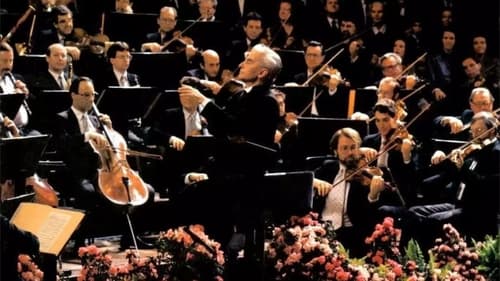
Director of Photography

Director of Photography
A production of Strauss' opera 'Der Rosenkavalier' performed at the Saltzburg Festival in 1984. Includes the Vienna State Opera Choir, the Philharmonic Orchestra with singers Wilma Lipp, Anna Tomowa-Sintow and Agnes Baltsa. Conducted by Herbert Von Karaja

Director

Director
Premiered in 1806, Beethoven’s Violin Concerto in D Major paved the way for three great violin concertos of the 19th and 20th centuries: Brahms, Tchaikovsky, and Sibelius. Extremely expressive and astonishing in it emotional scope, the work nonetheless received an ambivalent response at its premiere. Renowned for his knowledge of Beethoven’s oeuvre, the conductor Herbert von Karajan and the Berliner Philharmoniker are joined by the virtuoso violinist Anne-Sophie Mutter for a masterful performance.

Additional Photography
第2次世界大戦の1941年。ナチスドイツに占領されたフランスのラ・ロシェルの港から、出撃命令によって出航する潜水艦U96にヴェルナー(ヘルバート・グリューネマイヤー)が乗り込む。ベテランの艦長(ユルゲン・プロフノウ)や乗組員に囲まれながら、荒れた海での過酷な哨戒、次々と爆雷を放ってくる敵駆逐艦との攻防、海の藻くずと化していく敵の姿など、戦争の現実を次々と目の当たりにするヴェルナー。そんな中、U96に新たな命令が下される。
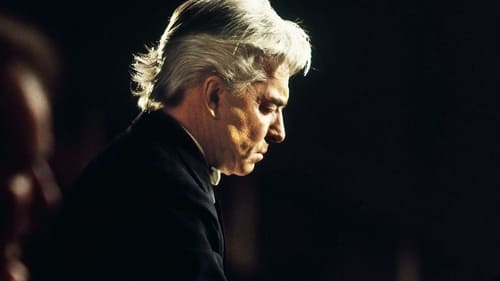
Director of Photography
Karajan conducts these symphonies with eyes closed, often intently enraptured by the music, smiling occasionally when a passage or solo sounds just right to his ear. He conducts Brahms with a greater sense of urgency than does Bernstein: the First symphony is 11 minutes shorter as conducted by Karajan! Nothing is rushed but there is what can only be described as emotional compression, an intensity of expression that sounds quicker than Bernstein's performances.
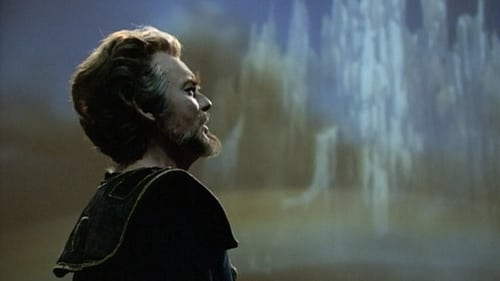
Director of Photography
This 1978 studio production of the prologue to Wagner's masterpiece is the only segment of the famous Salzburg Festival/Metropolitan Opera productions, first seen in the 1960s, that made it to film. Based on one of those original productions, Georges Wakhevitch produced stage settings and transformations that supported Karajan's concept with every possible means. Herbert Von Karajan's staging is in the epic style of another age, emphasizing the dignity of the gods rather than their all too human failings. With the singers - foremost among them Peter Schreier - Karajan had an ensemble that fully conformed to his intentions.

Director
The gypsy Azucena (Fiorenza Cossotto) takes revenge for her mother who was accused of putting a curse on one of the old Count di Luna's two sons: she decides to abduct the younger child and throw it in the flames. But when she is about to carry out this fatal act, the gypsy sacrifices her own child and keeps the old Count’s son, whom she names Manrico (IL TROVATORE, Plácido Domingo). Later, as adults, the troubadour Manrico and the Count di Luna’s elder son (Piero Cappucilli) do not know each other, but become rivals for the beautiful Leonora (Raina Kabaivanska). Manrico succeeds in winning the young woman’s heart, and she sacrifices herself for him, deceiving the Count’s son. Mad with jealousy, the latter orders the execution of the troubadour in front of his mother. Azucena reveals to him that Manrico was his brother. This legendary performance of Giuseppe Verdi's most successful opera was recorded at the Vienna State Opera under the baton of Herbert von Karajan.
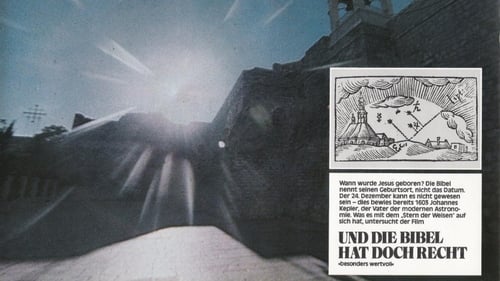
Cinematography
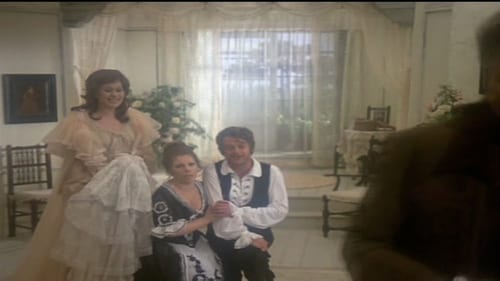
Director of Photography
Mozart's Marriage of Figaro is a comedy whose dark undertones explore the blurred boundaries between dying feudalism and emerging Enlightenment. Herman Prey's Figaro is admirably sung in a firm baritone and aptly characterized. So too, is his antagonist, Dietrich Fischer-Dieskau as the Count perpetually frustrated by the scheming wiles of Figaro and Susanna, here the perky Mirella Freni, who sings and acts like a dream. The Countess is creamy-voiced Kiri Te Kanawa, and the Cherubino, Maria Ewing, looks just like the horny, teenaged page she's supposed to be. The all-star leads are complemented by worthy supporting singers, the Vienna Philharmonic at the top of its form, and the experienced Mozartian, Karl Böhm conducting a stylishly fleet performance.

Director of Photography
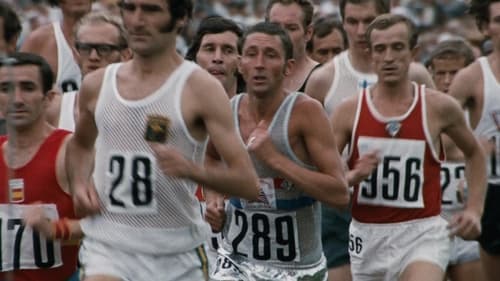
Director of Photography
Eight acclaimed filmmakers bring their unique and differing perspectives to the 1972 Summer Olympic Games held in Munich. The segments include Lelouch's take on Olympic losers and their struggle to remain dignified even in the face of bitter disappointment and defeat; Zetterling's dramatic exploration of the world of weightlifting; and Pfleghar's piece on young Russian gymnast Ludmilla Tourischev's majestic performance on the uneven bars.
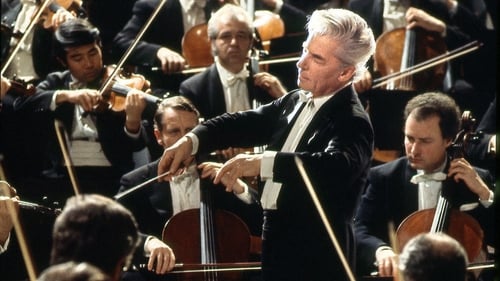
Cinematography

Director of Photography
ヘルベルト・フォン・カラヤンの演出、指揮によって、73年8月にミュンヘンで上演された、ヴェルディ後期の代表作である歌劇『オテロ』を収録したファン必見作。

Director
Count Almaviva is in love with Rosina. However, she is currently staying with Dr. Bartolo – who desires to marry her. By using a series of disguises, Almaviva manages to pass letters to Rosina and serenade her with his beautiful voice. Dr. Bartolo does his best to stop Almaviva but is constantly thwarted. In the end, Count Almaviva marries Rosina and Dr. Bartolo comes to terms with his defeat.

Director of Photography
Captain Ebbs is an older, experienced seaman who has, however, only sailed on freighters. While his current old barge, the Martin Luther, has to go into the shipyard for an overhaul, the shipping company gives him command of the elegant cruise ship Julia to temporarily replace a colleague who has fallen ill. The rough Ebbs finds his way into his new job only with difficulty and initially puts his foot in his social mouth.

Director of Photography

Director of Photography
Beethoven's opera Fidelio, conducted by Karl Böhm, featuring Gwyneth Jones as Leonore and James King as Florestan

Director of Photography
A promotional concert film made for promoting and introducing Moscow to foreigners.

Director
A 1968 production of Hans-Werner Henze's comic opera filmed at Berlin's Deutsche Oper. With the plot centering around how a whole town is deceived into taking a dressed monkey as a young lord, the work features performances from, among others, Edith Mathis, Donald Grobe and Barry McDaniel. Christoph von Dohnányi conducts.

Director of Photography

Director of Photography
This spectacular opera film was taped in 1967 and is based on the 1966 Salzburg Festival production directed by Herbert von Karajan himself, who also conducts the fabulous Vienna Philharmonic Orchestra. The production features the three greatest exponents of their respective roles at the time: Grace Bumbry’s magnificently seductive-toned Carmen, Mirella Freni’s ineffably lovely, touching Micaëla and Jon Vickers’s thrillingly manic-depressive Don José. On its release the film was hailed by Die Presse, (Vienna) as a “unique artistic event”, while Le Monde felt that Karajan’s production brought “a whole new dimension” to the opera, “combined with a magisterial interpretation”. A classical and utterly dramatic approach to probably the world's most beloved opera – Karajan’s Carmen is as much a delicacy for opera fans as it is a perfect starter for newcomers.

Director of Photography
A young man is chosen by a magazine company to be a modeled into a public heart-throb while being dogged by a persistant reporter out to expose the fraud the company is putting out.
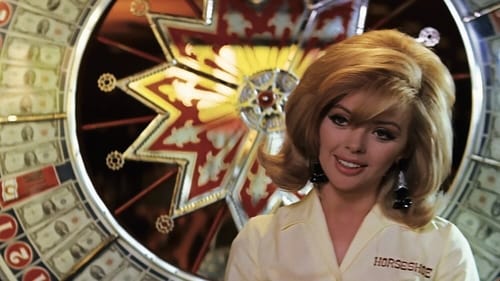
Director of Photography
An international gang of gun dealers in the USA has stolen the prototype of a laser rifle from a German laboratory. The FBI agent Cormoran is being sent to recover the state-of-the-art and highly effective weapon. But there are some indications that he has defected to the enemy. Since agent 007 is currently on another mission, the chief of intelligence has to fall back on his second best man, the previous number 006. And so the German secret agent John Krim is given the assignment to get the rifle back, find evidence of Cormoran’s treachery and finally eliminate the colleague. Krim’s journey takes him across the ocean, and there he experiences incredible adventures in San Francisco, Los Angeles and Las Vegas. Two women get in his way, and Krim can’t be sure whether he can trust them or whether they too are working for the other side.
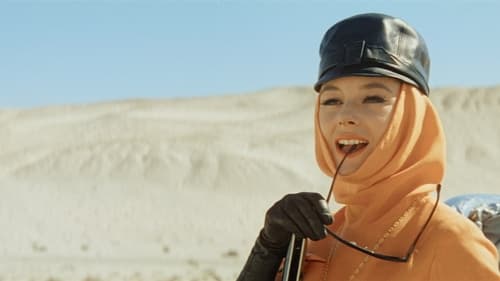
Director of Photography
Detective C.G. (Klaus-Juergen Wussow) begins to investigate the death of an attractive woman (Heidelinde Weis) whose naked body was found in Beverly Hills. When he recovers her journal, he is taken into her past where he finds that she lead a sexually promiscuous life. Perhaps in the pages of the diary will be a clue to her killer's identity. This thriller was the first German feature to be shot in Hollywood after WWII as well as the first feature for German television director Michael Pfleghar. Based on a bestselling novel by Curt Goetz, Die Tote Von Beverly Hills/The Corpse of Beverly Hills was adapted to the screen only a few short years after his death.

Director of Photography
An Interpol agent fighting smugglers in Istanbul.

Cinematography



















